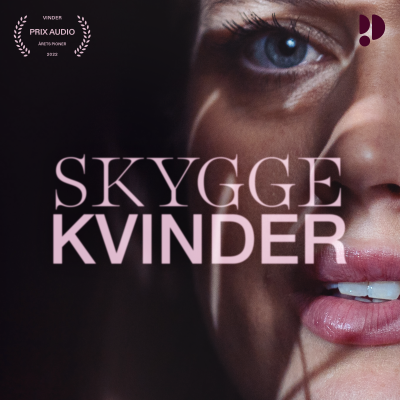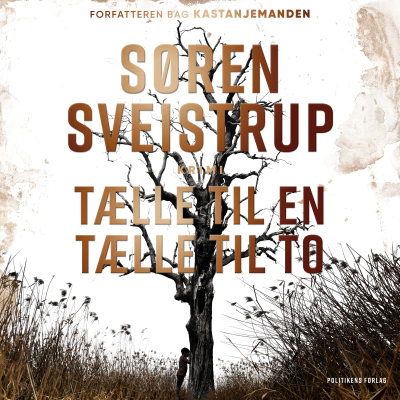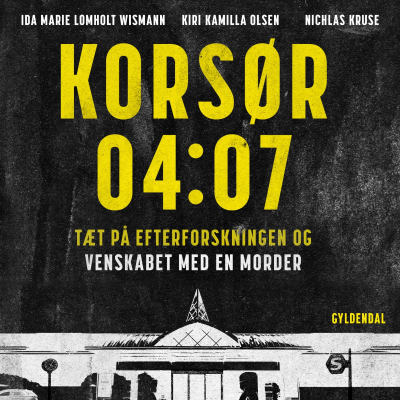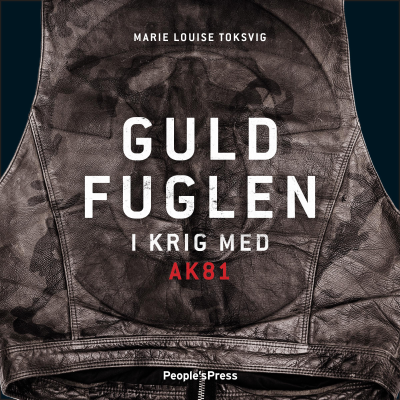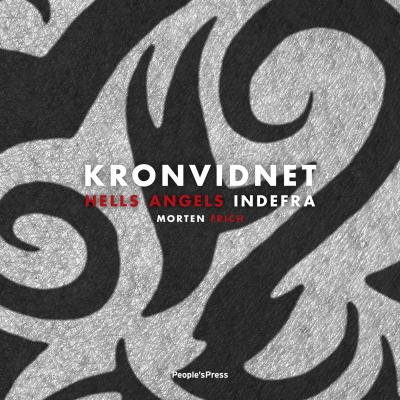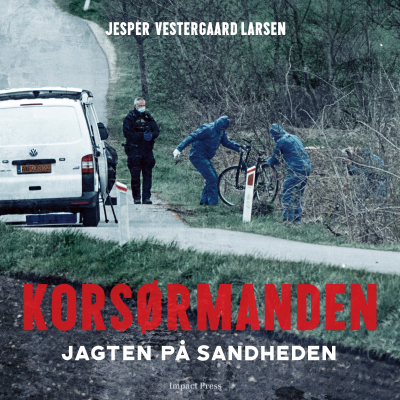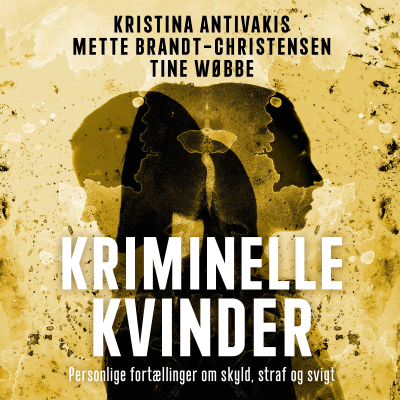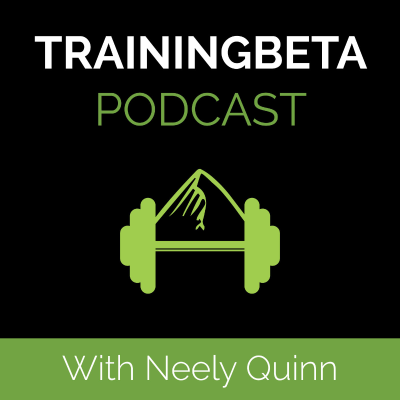
The TrainingBeta Podcast: A Climbing Training Podcast
Podcast af Neely Quinn
Hosted by Neely Quinn, The TrainingBeta Podcast is a weekly conversation with rock climbing's best and brightest. Pro rock climbers, climbing trainers, and other insightful members of the climbing community offer their experiences with training for climbing, the best diet for climbing, and their personal stories with climbing. Whether you're a beginner climber or a seasoned pro, you'll learn something new from these conversations.
Prøv gratis i 7 dage
99,00 kr. / måned efter prøveperiode.Ingen binding.
Alle episoder
251 episoderI recently read the bookAtomic Habitsby James Clear and, while it’s a really good book and I gleaned some things from it, I also realized that my habits are (humbly) already pretty good. This has been by necessity because there were years of my life when my habits were not good at all. That led me to experience extreme amounts of anxiety, depression, a lack of motivation, and terrible self-care, which amounted to poor health, complete apathy about climbing, failure in my business, and really hard times in my relationships. That just got personal really fast! But all of that is to say that I understand quite intimately what it feels like to be unsuccessful in my own life, and I had to make a lot of changes in my habits and mindset to get to where I am now, which is generally content and feeling pretty successful most of the time. Coach Matt Pincus also feels pretty content in his personal, work, and climbing life, so in this episode, he and I sit down and talk about some of our most important habits that help us be successful. Everyone has their own definition of “success” and we both define what that means to us. We’re not saying we’re the most successful people or that we’reamazing, but we do find that these habits really help us to show up as our best selves most days. Here are some of the habits we discuss: * Making sleep an absolute priority * Eating well every meal of every day * Having a mostly set schedule/routine * Reading and learning daily * Climbing with people who are stronger than us * Varying climbing workouts to stay motivated and consistent * Showing up consistently in climbing, even when conditions are not optimal This is a look into both of our personal lives, how we approach the world, our work, our climbing, and our happiness. I hope you enjoy it! Show Links * Performance Route Climbing Training Subscription Program [https://www.trainingbeta.com/route-training]($18/mo with 7 day free trial) * Train with Coach Matt Pincus [https://www.trainingbeta.com/matt] * I’m taking newlife coaching clients [https://trainingbeta.samcart.com/products/neely] * I wrote my habits out as a blog posthere [https://www.trainingbeta.com/top-5-habits-success/] Try the Performance Route Climbing Training Subscription Program If you want Matt to help you with your route climbing goals, he created an extensively detailed route training program that will help you gain strength, endurance, and work capacity so you can climb harder routes, get less pumped, and have more deliberate training sessions. There are 3 levels of the program with 50 days of training in each of them – that’s 3-6 months of training written out for you step by step. The program is $18 per month and you can try it out for free for 7 days and cancel any time. Learn More about the Performance Route Training Program [https://www.trainingbeta.com/route-training]
In this second installment of the “Common Sense Training Series,” I sit down with Coaches Matt Pincus and Alex Stiger to discuss how they go about finger training with their clients and themselves in the pursuit of gaining finger strength and keeping everyone’s fingers healthy and injury-free. Basically, they both feel like this topic is extremely confusing to climbers, and they wanted to simplify what you should be thinking about when you’re trying to plan your finger training protocol. Matt talks about his minimal hangs protocol that he does every day, how that might apply to you, and why he thinks it’s so effective. Alex talks about how she incorporates finger training into her warm-ups with a hangboard and in her climbing sessions just on the wall. They each give examples of some of their clients’ sustainable finger training protocols. Sustainability is a huge theme in this conversation because most of the time, people go in over their heads with finger training plans and they just can’t be sustained with busy schedules. Then they give their 3 most important tips for making an effective, sustainable finger training plan for yourself. As always, they did an amazing job of preparing for this interview, and both of them have so much experience at this point with training people that their advice is truly simple and easy to follow. I hope you enjoy this one as much as I did. Show Links * Get Alex’s 5.12 Breakthrough Series for 35% off until Friday, July 28th, 2023. [https://trainingbeta.samcart.com/products/512-breakthrough] * Try out the Bouldering Program by Coach Matt Pincus at the new $18 price [https://www.trainingbeta.com/bouldering-training] * Work with Matt as your coach [http://www.trainingbeta.com/matt] * Work with Alex as your coach [https://www.trainingbeta.com/alex] Bouldering Training Program If you’re tired of going into the gym without a plan and you want a clearly laid-out program made by an experienced coach, our Bouldering Training Program is just that. And it doesn’t cost nearly as much as working one-on-one with a coach. Matt Pincus created this online subscription bouldering program based off of what has been super successful with his clients over the years. There are 3 levels of training available to you, depending on how much experience you have with climbing training. You’ll go through non-linear cycles (learn more about what that means in the link below) of training power, strength, skill drills, and throughout it all you’ll be gaining all-day capacity. Hundreds of people have felt an increase in their bouldering ability within weeks of being on this program, and you can too. You get a 7-day free trial to see if it works for you and you can cancel at any time. Go to the gym with a plan in your hand, trust the process, and see results, all for just $18 per month. CHECK OUT THE BOULDERING PROGRAM [https://www.trainingbeta.com/bouldering-discount-35]
In this episode, I talk with Coach Alex Stiger about what she learns from watching all of the Climbing World Cups and how she uses those videos to teach her clients about their own climbing. You can passively watch any sport you want, but if you’re actually an athlete in that sport, you can turn those viewings into active learning sessions by asking yourself a few questions and being really observant. Here’s what we talked about: * Why she chose this topic right now * Why it’s important to have heroes in your sport * What World Cup climbers can teach you * What good climbing actually looks like * What trying hard looks like * How to be brave and try hard til the end * Awareness of rope management while climbing * Confidence in your body type by watching similar climbers at an elite level * Normalizing success, failure, disappointment, elation, etc. while climbing * What questions to ask yourself while watching in order to get the most out of it * Having goals after watching * Why you should actively watch other climbers at the gym and at the crag (and who to watch) * Specific resources to watch * Things to be aware of for your own well-being while watching I really loved how organized and thoughtful Alex was about this interview. I learned a lot and will be watching World Cups with a new lens now, and I hope you will too. Show Links * Enroll in Alex’s 5.12 Breakthrough Series [https://trainingbeta.samcart.com/products/512-breakthrough] until July 28th, 2023 * Work with Alex as your coach [http://www.trainingbeta.com/alex] * Try out our Bouldering Training Program [https://www.trainingbeta.com/bouldering-training] * Have questions? Email alex@trainingbeta.com [alex@trainingbeta.com] or neely@trainingbeta.com [neely@trainingbeta.com]
Back in April, I published an episode with Thomas Cunningham all about how he trains efficiently as a busy dad and ER physician to be able to send up to 5.14c projects in only 10-15 days outside climbing per year. You can listen to that episode in the link below: Listen to my first interview with Thomas [https://www.trainingbeta.com/media/thomas-cunningham] In that episode, we started talking about how he uses the Whoop (a wearable bio tracking device), continuous glucose meters, and some other biohacking type stuff, but the interview would’ve been reallllly long if we’d gone into all of it in details. So I asked him to come back for a second interview to talk about all of that. We’ll be doing another one soon on using bloodwork to optimize supplementation, etc. for climbing performance soon. So who is Thomas? Thomas is a 36-year-old emergency medicine physician and father of 3 children from Louisville, KY who’s been climbing for around 20 years. After talking to him for a while, I realized he is SUPER scientific about everything he does in climbing. This is no surprise because he’s quite an overachiever in his academic/professional life as well. He’s published a bunch of academic papers, he was chief resident at the University of Louisville Department of Emergency Medicine a while back, and WHILE he was doing that, he started a medical device company, Inscope Medical, and was VP of Innovations. He also completed an IronMan while he was an intern resident. Here is his CV [https://www.trainingbeta.com/wp-content/uploads/2023/04/Thomas-Cuningham-athlete-CV-2023.pdf] if you’re interested. He’s an ambitious person, to say the least, and that means he has less time than some of us for climbing and training. Only getting outside climbing around 10-15 days per year, and focusing all of that time on very hard projects, he has learned that his training and all of his days outside have to be hyperfocused and specific. He also has to optimize his body for all the training he does and to be in peak performance mode when he’s trying to send. He’s used a continouse glucose meter (CGM) on himself in the past and he asked Sam Elias and Jonathan Horst to start wearing one in order to help them optimize their fueling for climbing. He came into this interview with data on both of them (and himself), including what they were eating before using the CGM, the changes they made to their diets after and while using it, and the effects it had on their climbing. The CGM basically takes a reading of your blood glucose every 5 minutes so you can see in real time how each food/meal affects you. We also talk a little more about the Whoop in this episode, which I’ve now gotten 6 of my friends and family using. It’s really interesting looking at the data each day about your sleep quality/quantity, how recovered you are, your HRV, and all kinds of stuff I’ve never paid attention to before. Thomas goes into how exactly he uses the whoop and how I’ve been using it myself. This episode was really fun for me because this stuff as a nutritionist is extremely interesting. I hope you love it too! Oh, and if you want to work with Thomas, you can do that by clicking on the link below: Work with Thomas on Your Own Biohacking [https://www.thomascunninghammd.com/]
In this episode, I sat down with Coach Matt Pincus to talk about his infamous “checklist” that he uses when he’s projecting a route (or a boulder – but usually routes). As a coach, often Matt’s job is less about creating strength training programs and more about using tactics to get people up their projects in an efficient way. He’s found that he’s been having a lot of conversations with clients lately about how to approach their route projects, now that it’s climbing season in a lot of places. This episode is dedicated to helping people approach hard projects (and sometimes even not-so-hard projects) to help keep yourself motivated and on the trajectory to a send. Matt uses a checklist of links and accomplishments he wants to make on a route before the final checkbox of sending. He shares how he creates that list, depending on what kind of route it is. He also talks about the following: * A couple examples of his own project checklists * 3 things he sees people do wrong while projecting * Planning your climbing day efficiently * Top down vs ground-up * When to start being tactical on a route * When to start giving redpoint burns Show Links * Train with Coach Matt Pincus [https://www.trainingbeta.com/matt] * How to Approach Routes Systematically: Top Down or Ground Up [https://www.trainingbeta.com/how-to-approach-routes-systematically/] – Article by Matt * Podcast Episode 134: The Principles of Projecting with Matt [https://www.trainingbeta.com/media/pincus-projecting/] * Article on Projecting Principles by Matt [https://www.trainingbeta.com/matt-pincus-projecting-principles/] Train with Matt Pincus If you want Matt to help you with your own goals, whether they’re with bouldering or route climbing, he’s available for month-long commitments where he’ll talk with you over zoom and create a program for you and keep in touch with you via the TrueCoach app throughout the month. He’ll help you get stronger overall and cater to your specific goals so the timing is right for you to send when it’s time to send. Learn More about Working with Matt [https://www.trainingbeta.com/matt]
Prøv gratis i 7 dage
99,00 kr. / måned efter prøveperiode.Ingen binding.
Eksklusive podcasts
Uden reklamer
Gratis podcasts
Lydbøger
20 timer / måned








